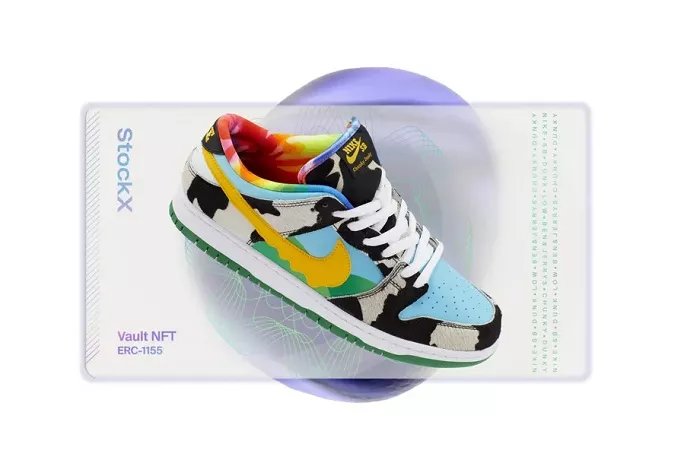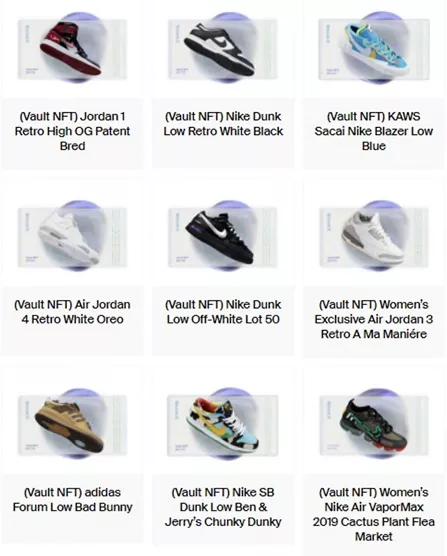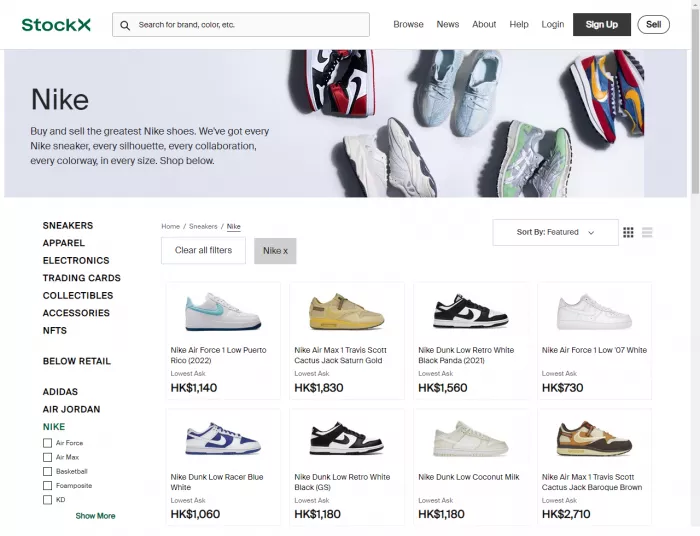As early as February, Nike filed a lawsuit against stockx, a well-known online sports shoe dealer, accusing it of launching non homogenous token (NFT) based on nike shoes without permission Then last month, Nike continued to attack stockx for "deliberately selling fake shoes" because the latter claimed that the shoes sold on its website were certified. However, after a long legal tug of war, stockx has finally launched a counterattack.

The sneaker dealer said that Nike's complaint was "just a failed attempt to shore up its baseless claims".
As for the cause of the conflict between the two sides, it comes from the "vault NFT" series launched by stockx in January this year.
The company claims that its idea comes from allowing customers to buy digital collections bound to physical products, and the advantage of doing so is that transactions can be more efficient because buyers do not have to wait to resell shoes.
However, eight of the nine limited edition vault NFT series initially launched by stockx are related to Nike shoes. As the right advocate of this series of IP, Nike obviously can't sit back.

Initially, Nike claimed that stockx's vault NFT infringed its trademark rights because it would confuse consumers. Later, the company said that it bought four pairs of fake shoes from December last year to February this year.
In other words, Nike doesn't trust how stockx uses NFT to validate sneakers. Because the pure scheme of "digital + physical" binding together cannot be reliably used to distinguish the true and false sneakers.
However, stockx, which promises that every pair of shoes sold on its website are genuine, has gained wide popularity among consumers.
In the latest submission, stockx disclosed that each pair of shoes were manually inspected and even used AI enhanced machine learning technology.

However, the most embarrassing thing for Nike is that it once praised the certification process of stockx and the hard work in combating counterfeits.
So after a big round, the war of words came down to "how many claims do both sides have on vault NFT".
● stockx mentioned in the document that vault NFT is never a 'virtual product' or a 'digital sneaker' because it is essentially associated with a physical object.
● in addition, since vault NFT can be used as a digital receipt, stockx believes that it cannot be sold as a separate product.
● the dilemma is that when customers purchase vault NFT, the shoes are essentially left in stockx's warehouse until someone chooses to claim them.
● at the same time, NFT in digital form can be resold many times, leading Nike to believe that vault NFT has become a separate product rather than a digital credential.
Finally, no matter how the case is finally resolved, it may have a far-reaching impact on the actual definition of NFT and whether NFT in the resale market should be regarded as trademark infringement.